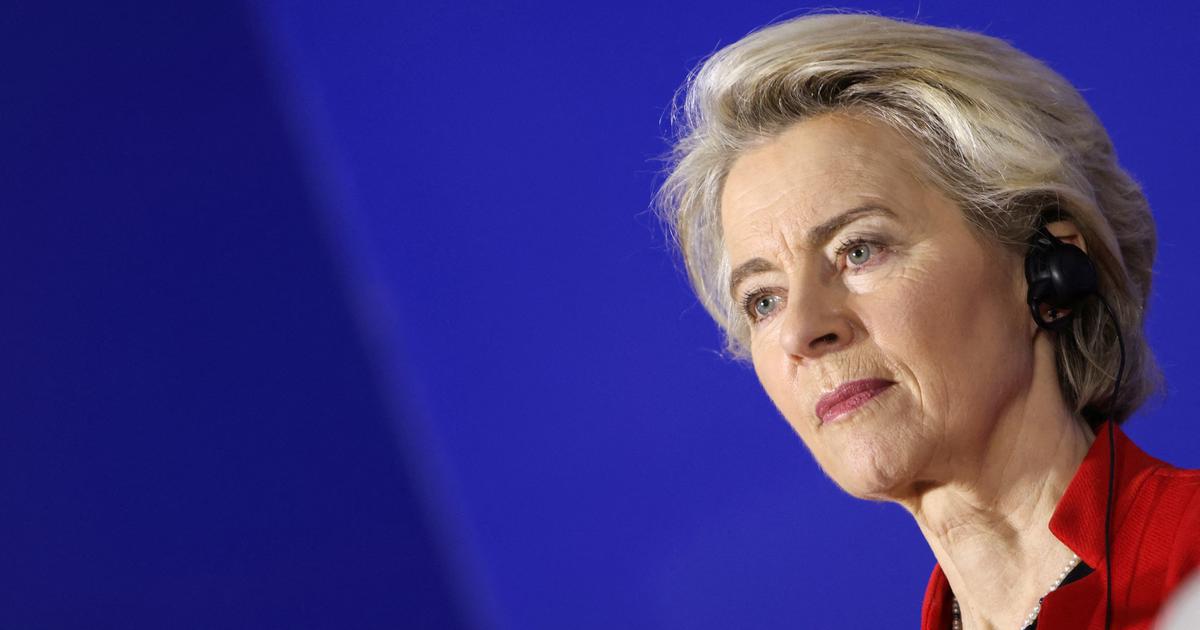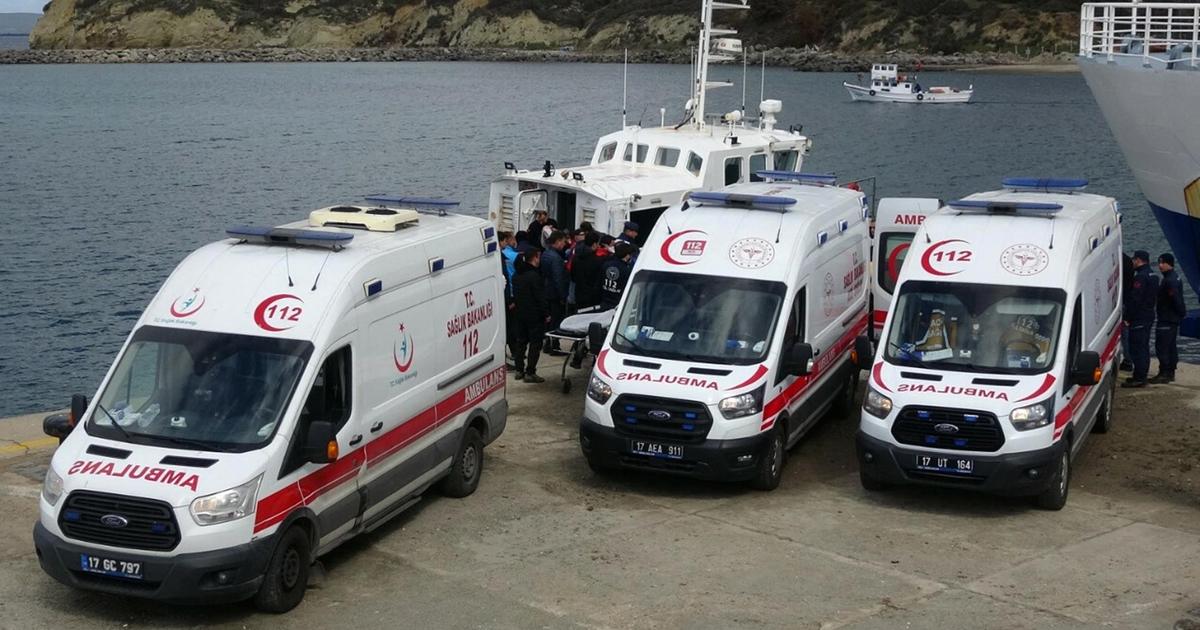The Turkish population is exhausted - and the takeover of Afghanistan by the Taliban will intensify anti-refugee sentiment in the country's politics.
The large number of refugees in Turkey is causing increasing tension in the country.
The population is exhausted.
But the EU shouldn't leave Erdogan alone either.
This article is available in German for the first time - it was first published on September 8, 2021 by the magazine "Foreign Policy *".
Less than a 15-minute drive from the Turkish Parliament, a two-day revolt broke out early last month.
Angry mobs ransacked shops and set houses on fire after a local youth was stabbed to death during a brawl with a group of Syrian refugees.
When BBC Turkey visited the Altindag district - a stronghold of the AKP * of President * Recep Tayyip Erdogan - the residents complained about tax evasion by foreign companies, about the displacement of locals from homes and businesses, about protection racket by ethnic gangs and about state governments Authorities who refuse to enforce the law.
Refugees in Turkey: Situation threatens to escalate
Public outrage grew even further when, a few days later, six nationalist activists who describe themselves as "angry Young Turks" were arrested on charges of terrorism for hanging banners reading "The border is our honor" - a Slogan that the Turkish military prominently presents at its outposts. Two opposition parties, the People's Republican Party and the Party of Good, responded to the activists' arrest by posting similar banners on their buildings across the country.
This step was almost universally popular: surveys showed that more than half of Erdogan's * own voters, around two-thirds of his nationalist allies and more than 90 percent of opposition voters agree with the banners.
In an interview, I asked one of the six activists to describe in one sentence what makes him and his like-minded so angry.
He responded with a verse by Necip Fazil Kisakurek, Erdogan's favorite poet: "We became strangers in our own homes, pariah in our own country."
Displeasure with refugees in Turkey is increasing: "Warehouse for the world's refugees"
There has long been resentment in Turkey * that millions of refugees are not returning to their homeland. Added to this is the great interest shown by foreign governments in using the country as a base for receiving a wave of Afghan refugees fleeing the Taliban. A populist, anti-refugee hardliner is already forming his own party to become the Turkish version of Italy's Matteo Salvini, the far-right leader who used a similar opportunity to become kingmaker in his country.
Meanwhile, the established opposition is being urged by its voters to show more fighting spirit. Up-and-coming politicians like Ekrem Imamoglu from Istanbul and Mansur Yavas from Ankara are criticized because they are seen as not tough enough. Even Erdogan is rowing back: once he boasted that Turkey was ready to take in needy refugees if no one else would; now he complains that Turkey cannot become the “warehouse for the world's refugees”.
You didn't have to be clairvoyant to predict that the refugee problem in Turkey would trigger an angry backlash - I warned about it on this website two years ago.
Turkey took in more refugees than it had capacity and hosted them longer than it could afford.
She had neither a plan nor the means to successfully integrate millions of Syrians, Iraqis, Somalis and other nationals.
The fact that Turkey accepts more than five million foreigners with cultural, ethnic and linguistic differences from its own population borders on an impossibility.
Erdogan took in refugees without a plan
Ankara has never dealt honestly with the challenges the country is facing. Instead of developing innovative and lasting solutions to the new challenges, Ankara glossed over its hasty politics with platitudes about the moral duty to oppose Syrian President Bashar al-Assad, about the common belief in Islam and about the threat posed by the Kurds. But Ankara knew very well how unpopular the whole venture was - as did the European countries, which count on Turkey as the first line of defense with regard to the influx of refugees in their direction.
Opinion polls have predicted this crisis for more than five years. A recent poll found that three quarters of respondents are in favor of closing Turkish borders and deporting undocumented foreigners. According to the same poll, more than 70 percent would vote for the party that promises the toughest crackdown.
Another study, funded by the Heinrich Böll Foundation of the German Greens, found that around 65 percent of the public view refugees as an “economic burden” and believe that they are given “preferential treatment”.
An earlier study by the Center for Migration Research at Istanbul Bilgi University concluded that this is a bipartisan trend: more than half of voters in the pro-Kurdish People's Democratic Party (i.e. the Turkish party, arguably the furthest left on social issues is) and about 65 percent of the supporters of Erdogan's conservative AKP are of the same opinion.
Turkey's vision of expanding its own influence led to false optimism
That is not to say that Turkey is not to blame for its grossly irresponsible adventures in Syria, Iraq and elsewhere. Deviating from the traditional Turkish strategy of avoiding entanglements in the Middle East when it is not absolutely necessary, Erdogan and his foreign policy A team, including former Prime Minister Ahmet Davutoglu and top foreign policy advisor Ibrahim Kalin, were convinced that Ankara was his Should regain power in the region. They had the unfounded belief that millions of former subjects of the Ottoman Empire would welcome a renewed expansion of Turkish influence.This inevitably led them to false optimism about the impending overthrow of Assad, as well as improper confidence in their ability to shape future events.
It is unforgivable that vulnerable civilians displaced from their homes should bear the burden of the misfortunes they did not choose and the ambitions pursued at their expense. But it is just as important to recognize how many sacrifices Turkey has already made. After the Taliban retook Afghanistan, the Prime Minister of Estonia - a country of 1.3 million people - announced that the country would accept 10 Afghan refugees. He later tripled the number to 30 after public ridicule. In contrast, Istanbul has taken in around one million refugees from Syria only, and the total number of refugees from all countries is likely to exceed the total population of Estonia.
In the Turkish province of Kilis, which is one of the most sparsely populated regions in the country with 141,000 inhabitants, 105,000 Syrian refugees were taken in - almost as many as in Italy * with its 60 million inhabitants.
At the same time, a flotilla of the European Union is selling refugee boats in the Mediterranean and Greece is building a border wall that would make Donald Trump green with envy.
The contrast between what Europe said and what it did could hardly be greater.
Turkey is going through demographic change
The influx of refugees is part of a larger problem. Turkey is going through a demographic change in which its own citizens are economically disadvantaged. Many refugees are employed - often informally - as poorly paid workers on hazelnut farms, in clothing factories and in other labor-intensive businesses. In order to promote the economic integration of the refugees, Turkey has also launched numerous programs funded by the EU or the United Nations, through which Erdogan-friendly industrialists in rural Anatolia fill their pockets, but the feeling of injustice among the Turkish lower classes who are mostly religious conservatives or ethnic Kurds and whose jobs and wages are threatened will be reinforced.
Erdogan starts citizenship project: real estate bubble grows
Middle-class Turks are under comparable pressure.
In order to get a grip on the real estate bubble from Erdogan's Baubonanza, Turkey launched a citizenship through investment program in 2016, where anyone who invests at least $ 250,000 in Turkish real estate can get a Turkish passport.
Predictably, the program is popular with Iraqis, Iranians, Syrians, Libyans, Pakistanis and other middle-class nationals because it provides them with personal security, economic opportunity and international mobility at an affordable price.
Although the exact numbers are not disclosed, the number of passports issued under this program is likely to be in the millions.
As a result, property prices in popular markets such as downtown Istanbul and on the Aegean coast - where opposition parties find huge support - have soared that most locals can no longer afford rental apartments, let alone condominiums.
While locals are suffering from the recent drop in the lira, Turkish shops, restaurants and even taxis are more pleased with foreigners paying in dollars or euros than with local customers.
The result is a general sense of alienation that makes refugees easy scapegoats.
Erdogan also hopes for new voters
The secularists and nationalists close to the opposition have two other fears. First, they fear that Erdogan could take advantage of his open door policy to change the mindset of the electorate and make himself virtually invincible. For years Erdogan has been discussing a process for citizenship for more than five million refugees, ostensibly to get them out of the informal economy. That is five million new voters, who would probably be grateful for their new citizenship and would therefore support him, would also be a blessing for Erdogan's political future. His opponents, for whom an election victory against him finally seems to be within their grasp, are concerned that he will save himself this way if he suspects defeat.With a powerless parliament and overcrowded courts, there would be little hope of stopping him.
Second, they fear that underground jihadist networks will organize themselves and throw the country into chaos, particularly targeting the secular opposition, including the Shiite minority in Turkey.
Turkey had to contend with Islamic extremism even before September 11th.
Al-Qaeda and the Islamic State have already carried out more than a dozen major attacks.
In addition, a significant number of Turkish citizens have emigrated to the areas controlled by the Islamic State (estimates range from 5,000 to 9,000 people) and local journalists are warning that these are reorganizing within the country.
Refugee hostility in Turkey: Not a result of hatred
But neither the country's leadership nor its foreign partners are doing anything to allay these fears. Those who bring them up are portrayed as stupid and pitiful and their voices drowned out: by idealists who give abstract lectures on moral duties (from which the rest of the world appears to be exempt), by pessimists who claim that nothing is being done can to reverse the trend, and by both left and right opportunists dreaming of millions of refugees who will bring about a working class revolution or an Islamic revival - whichever illusion they prefer.
Contrary to popular belief, the rise in hostility towards refugees in Turkey is not due to prejudice or hatred.
It is the result of the exhaustion of ordinary Turks, who perhaps of all have done the most for refugees (while many others have done nothing at all) and who now can no longer.
Deceived by their leadership, insulted by intellectuals and exploited by their European neighbors, these people have had enough now.
Erdogan and his advisors should keep the following in mind: No leadership, no matter how lucky, skill or sophistication, can accommodate a population the size of an entire country and find ways to pay for it without its own people's consent.
The international community must also abandon its dream that the millions of refugees can stay in Turkey forever. “Quid pro quo” deals with Erdogan are no longer enough. Without a stable and lasting peace in Syria and Iraq, through which millions of displaced persons could return to their homes and which is not in sight, there is no other viable option than facilitating repatriation to the Turkish-controlled areas in northern Syria - one Strategy that Europe has so far vigorously rejected.
Many of the countries that host the most refugees in the world, from Colombia to Lebanon to Pakistan, are in great political trouble.
Europeans who fear the refugees in their midst and politicians who believe they can take advantage of a humanitarian crisis should start worrying about what happens when Turkey is on their shoulders buckles.
by Selim Sazak
Selim Sazak
is a PhD student in Political Science at Brown University.
This article was first published in English on September 8, 2021 in the magazine “ForeignPolicy.com” - as part of a cooperation, a translation is now also available to readers of the IPPEN.MEDIA portals. * Merkur.de is an offer from IPPEN.MEDIA.
+
Foreign Policy Logo
© ForeignPolicy.com







